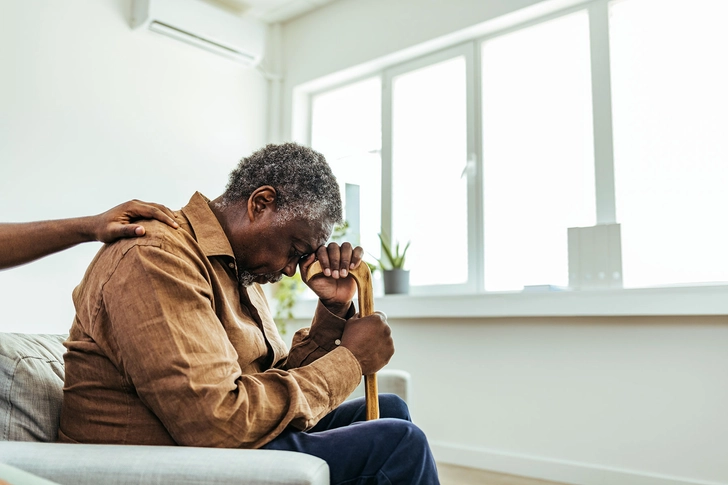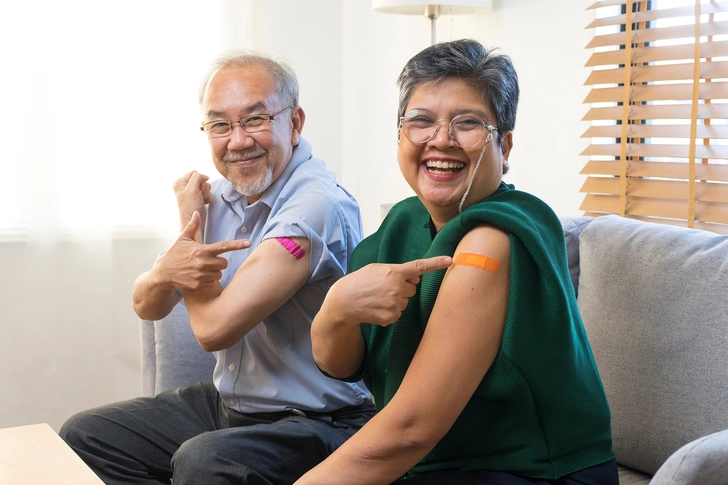- Overview
- Signs & Symptoms
- Tests & Procedures
- Lung Diseases
- Pneumonia
- Bronchitis & Bronchiolitis
- Respiratory Syncytial Virus (RSV)
- Tuberculosis (TB)
- Nontuberculous Mycobacterial (NTM) Lung Disease
- Other Respiratory Infections
- Interstitial Lung Diseases & Fibrosis
- Hypersensitivity Pneumonitis & Related
- Lung Tumors & Nodules
- Pulmonary Hypertension
- Pleural Conditions
- Other Lung Conditions
- Environmental Impacts on Lung Health
- Therapies & Management
- View Full Guide
Why People of Color Are More at Risk From RSV


What Is RSV?
Getting infected with respiratory syncytial virus (RSV) usually means you're sick for a week or two with cold-like symptoms. But older adults are more likely to have serious RSV symptoms that require you to visit the hospital. Research shows that severe RSV affects some older people of color unequally.

Higher-Risk Groups
People aged 60 or older, especially those with chronic conditions like lung disease, cardiovascular disease, or diabetes, are at a higher risk of severe RSV. It can lead to pneumonia and hospitalization.

Health Conditions That Increase Risk
Conditions like cardiovascular disease, chronic lung disease, and diabetes, which are more common in Black and Hispanic people, increase the risk of severe RSV. Managing these conditions is crucial to reducing RSV severity.

Decline in Hospital Visits with Age
Hospital visits among older Black and Hispanic people decrease significantly with age, especially after 80 years. This trend suggests that older adults of color may face barriers to accessing health care as they age.

Social Determinants of Health
Income, access to health care, and living environment, including air quality and poverty levels, influence the risk and severity of RSV.

Regional Influence on RSV Rates
Regions with high African American populations, particularly in the South, experience longer RSV seasons. This contributes to higher infection rates.

RSV Vaccination
Getting vaccinated significantly reduces the risk of severe RSV. The vaccine is now recommended for everyone aged 75 and older. People ages 60 to 74 who are at higher risk for severe disease due to RSV should also get vaccinated.
Photo Credits:
1) E+/Getty Images
2) SeventyFour/Shutterstock
3) JLco Julia Amarai/Shutterstock
4) E+/Getty Images
5) Valeri Luzina/Shutterstock
6) slege/Shutterstock
7) ben bryant/Shutterstock
SOURCES:
American Medical Association: “RSV vaccines: Questions patients may have and how to answer.”
CDC: “RSV Transmission,” “Symptoms and Care,” “Hispanic or Latino People and Type 2 Diabetes,” “Respiratory Syncytial Virus (RSV) Epidemiology in Adults.”
Columbia University: “Everything You Need to Know About the RSV Vaccine.”
Morbidity and Mortality Weekly Report: “Characteristics and Outcomes Among Adults Aged ≥60 Years Hospitalized with Laboratory-Confirmed Respiratory Syncytial Virus – RSV-NET, 12 States, July 2022-June 2023.”
Pew Research Center: “Most Americans say the declining share of White people in the U.S. is neither good nor bad for society.”
American Journal of Respiratory and Critical Care Medicine: “Chronic Obstructive Pulmonary Disease in America’s Black Population.”
National Heart, Lung, and Blood Institute: “Study: Blacks in U.S. remain at higher heart disease risk than whites.”
Office of Minority Health: “Diabetes and African Americans,” “Hispanic/Latino Health.”
Current Cardiovascular Risk Reports: “Unique Cardiovascular Disease Risk Factors in Hispanic Individuals.”
U.S. Department of Health and Human Services: “Social Determinants of Health.”
National Medical Association: “Respiratory Syncytial Virus And African Americans.”
Open Forum Infectious Diseases: “Relationship between Neighborhood Census-tract Level Poverty and Respiratory Syncytial Virus (RSV)-associated Hospitalizations in U.S. adults, 2015-2017.”
U.S. Census Bureau: “Inequalities Persist Despite Decline in Poverty For All Major Race and Hispanic Origin Groups.”